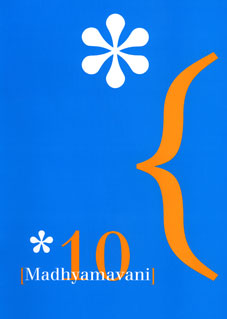Madhyamavani online
Article summaries
A collection of articles on Buddhism and Budddhist practice from senior members of the Western Buddhist Order (WBO). Here we look at models of spiritual practice; what the the place is for the FWBO in the modern Buddhist world and the changes happening with the FWBO itself; finally, what does it mean to become an Indian Public Preceptor in the WBO.
Living in Interesting Times Part II
This article has been collated with Living in Interesting Times Part I and republished as The FWBO — a Community in Transition in our Mezzanine Section
Three Myths of the Spirtiual Life
Is Buddhahood something that we must strive towards gradually? Is it a power beyond the ego, to which we must surrender ourselves? Or is it in some sense already ours — something so naturally part of us that we habitually ignore it? Subhuti considers the pros and cons of three ways in which we can envision Buddhist spiritual life.
Looking for an Overview
Vishvapani edited Dharma Life magazine for eight years. At the start of 2003 he took on a new role as well, helping the FWBO in Britain to develop. Following a year in which he has developed an overview of the Movement and involved himself in the changes it hwas undergoing at that time, Dhammadassin asked him about his perceptions of the FWBO in the UK.
Contacting the Buddha Principle
Sudarshan and Chandrashil, who became Public Preceptors in 2002, are the College’s first Indian members. While they were visiting Madhyamaloka in November last year, Subhamati took the opportunity to interview Sudarshan for Madhyamavani.
Please note that many articles on this site were a product of their times. The FWBO is very much a growing and developing tradition; some of the institutions, offices and practices referred to will have matured, changed or been abandoned subsequent to publication.
